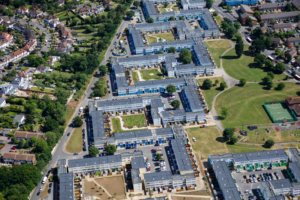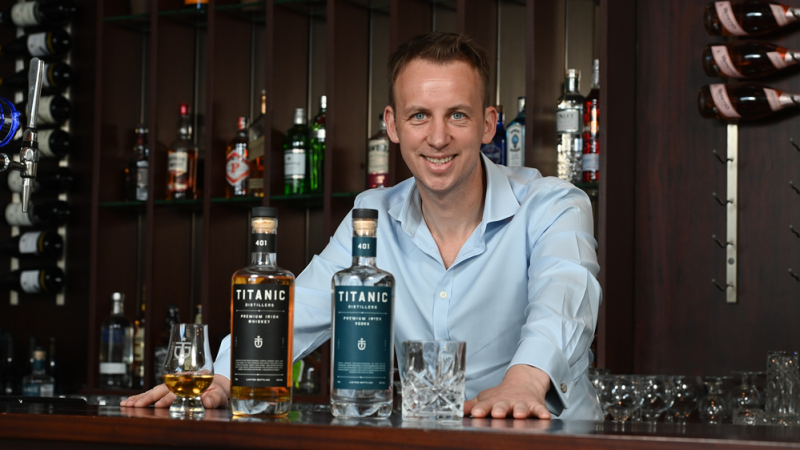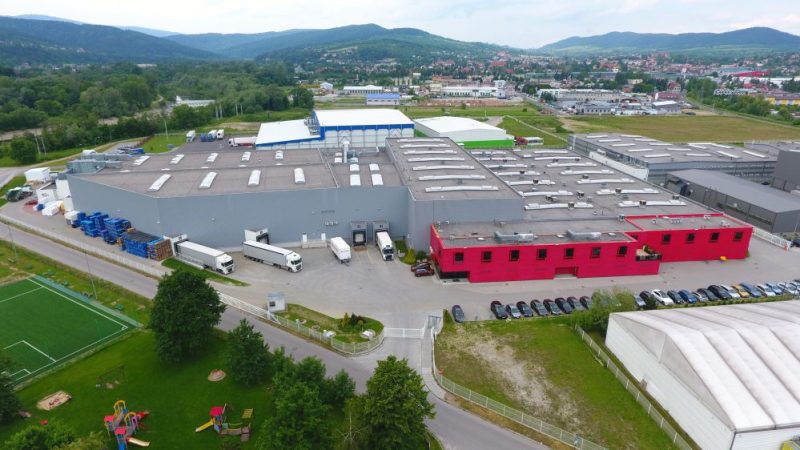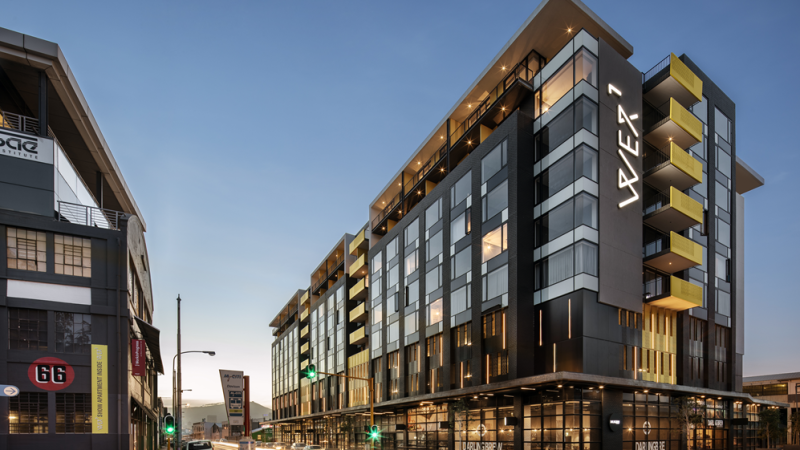Langley’s business is roofs. For some 67 years, the company has been operating its core business, supplying roofing systems to the social housing, education, and healthcare sectors. It has gained an increasing market share across those sectors by designing and building roofs that serve key society areas that include some of the most vulnerable individuals, a responsibility that Langley takes extremely seriously.
“We work on the principle that everything we do needs to be of the highest quality with the utmost expertise,” says Langley’s CEO, Dean Wincott. “We pride ourselves on our compliance, particularly in the aftermath of the Grenfell tragedy and the introduction of the Building Safety Act.”
Langley has fire-rated flat roofing systems to Broof(t4) independently certified by the BRE and each roofing system is also independently certified by the BBA. In addition, Langley designs and supplies high-quality products and monitors their installation through a network of approved contractors. The company is unique in the market in that its roofs have an Independent Insurance Guarantee up to 30 years.
Whilst roofs are the core part of Langley’s business, the company has also developed two subsidiaries to address future requirements. In the first of these subsidiaries, Langley Structures, the company is working to meet the urgent UK need for more affordable housing. Langley Structures, designs, supplies, and installs lightweight structures that can be installed on top of existing buildings to create new homes, helping people out of homelessness and temporary housing. The second subsidiary company, Langley Training Services, is a social enterprise aimed at ensuring the future of Langley and the roofing and construction industry by delivering positive socio-economic and environmental impact.
 The Next Generation
The Next Generation
“Mindful that the average age of UK roofers is over 50 there is an urgent need to bring young and more diverse people into the industry” Wincott stated. To address this he continued,” We have set up a training centre within the business that has received government-approved status to train and upskill both new apprentices and the existing workforce using NVQs and CITB short courses.”
Langley Training has established a flagship training centre in Daventry, currently with thirty-two apprentices. These are not apprentices for Langley itself, but individuals that have been referred from across the industry and travel from all parts of England to receive high-quality training. “Three or four years ago, we assessed existing market offerings for training, looking at how to bring young people into construction,” Wincott recalls. “We found that there were very few formal apprenticeship providers which required apprentices to travel large distances to access training.”
Langley continued their research to find out why there was such a paucity of adequate training. They found that the root of the issue was continuing uncertainty over the availability and accessibility of government funding.
“You cannot build a business on funding that might get withdrawn at any moment,” Wincott tells us. “But as a supplier we can source spare material that can be used for training purposes. We have invested in our training facilities, and creating a training facility for the industry. OFSTED, ESFA and the CITB govern us for quality assurance that ensures the industry can access the highest standard of industry training service, providing suitable accreditations, and funding to train people.”
Through active partnerships, accreditations, and funding from the ESFA, as a recognised training provider on the Apprenticeship Provider and Assessment Register (formerly RoATP), and together with support from the Department for Energy Security and NET Zero, and the Construction Industry Training Board, Langley has been able to put this much-needed facility in place. Since then, the facility’s excellent reputation has spread through word-of-mouth. When we spoke with Wincott, the facility was training thirty-two apprentices and has had one hundred others pass through its doors over the last few years. This is a critical time for the industry, with the Construction Leadership Council (CLC) driving change through the Building Safety Act and with the industry focussed on accreditation, proving skills competency through accredited qualifications is vital.
Roofing, housing, and training—these three businesses have come together to form a single roofscape synergy. Langley supports refurbishment and retrofitting, and a division of the company works on systems for new properties and developments.
 Taking on Challenges as Their Own
Taking on Challenges as Their Own
Across all three strands of the business, there is clearly one unifying theme: Langley’s adoption of its clients’ challenges.
“We work to identify our clients’ issues and treat them as our own,” Wincott says. “In the education and social housing sectors for example there are currently many challenges to address.”
“In the aftermath of the Grenfell tragedy, the Building Safety Act means standards in the industry are at a new high; simultaneously, a housing crisis requires the construction of a large number of new properties just to keep pace with demand. While, at the same time, the existing housing stock needs to be desperately brought up to a decent standard and all of this needs to be accomplished in an economic climate that has seen significant inflationary pressure resulting in higher prices for raw materials.” Wincott continues “If you look at the education sector, some 110 schools are closed because they are built with Reinforced Autoclaved Aerated Concrete, a product that was only certified as dangerous ten years ago. Our challenge is to try and service these schools, to find cost-effective solutions, and create longer-lifespan roofing systems The average lifespan of a roof is 20 years, and Langley’s lasts more than 30 years. This is supported by an asset management plan over 20 years, allowing the building owners to be proactive in their maintenance planning.”
“Every company needs to future-proof their business and look not just at today but tomorrow,” Wincott says. “We only supply products that are robust, long lasting and contribute to greater sustainability long term. The industry must start working towards the mandatory implementation of independent accreditation.”
As for Langley’s future, over the last four years, Langley has tripled in size, and in certain parts of the country it is a strongly recognised brand, but Wincott is passionate about spreading the word further.
“Over the next five years, we want everyone to know about us,” Wincott says. “We’re continuously looking to add greater value to our customers in the sectors we operate as well as expanding both our geographical reach and presence into new sectors across the UK.
Langley’s commitment to safety and sustainability is also why the company was recently crowned a Building Safer Future Champion. It is one of only eleven companies to receive the honour, while most of the others are corporations one hundred times larger in size. Wincott finishes the interview with a quote on why Langley is growing as a business “It’s not just the processes; it’s the culture, our people, and how we design buildings.”






